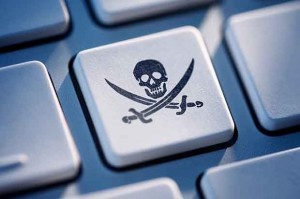The winners: consumers, content providers, and advertisers
The losers: pirates, malware, viruses, and thieves
The internet has been a huge engine for commerce. You can go online to by just about anything and have it delivered to your home. You can also legitimately buy and download music, movies, and television shows from a incredible array of legal services. But where there are legitimate businesses, there are also pirates trying to make a quick buck selling that which they do not own. The truth is they make more than a quick buck — they steal billions every year pirating content belonging to others.
GroupM, a leading global media investment management company, recently announced that they will require all their partners to become certified by the Trustworthy Accountability Group (TAG), a voluntary initiative by the advertising industry to fight internet piracy of copyrighted material — typically movies, music, and television programing. Many piracy sites make their money from advertisements on their websites. Indeed, the Digital Citizens Alliance conducted a report concluding that piracy sites made over $209 million selling ads in 2014. So the initiative is aimed at stopping advertisements from legitimate companies running on illegitimate pirate sites. By stopping the flow of advertising dollars to the pirate sites, piracy itself will be reduced, thereby incentivizing creativity, innovation, investment, and jobs.
GroupM should be commended for their leadership. And you can help thank them by clicking here.
While some might like the idea of pirates operating on the Internet because they think it means cheap or free movies or music, the problem is they are not seeing the whole picture. First, pirates are thieves making money selling stolen goods. Pirates are not committed to your safety. Legitimate websites are.
When you’re buying a movie or a song from iTunes or some other legitimate website, you won’t get a computer virus. Legitimate websites will not infect you with malware that fouls up your computer, deletes your data, or gives them access to your computer’s power and your sensitive information.Pirate sites cannot make the same promise.
Even if you avoid malware, piracy hurts the consumer. We all want great music and movies. But to make great movies and music, the creators of that content must be able to pay their bills. Thus, they need to make money.
This voluntary initiative creates a third-party team of validators that will provide internet advertising companies with tools to limit their exposure on pirate websites. The idea is to limit the revenue received by pirate websites from advertising and help foster a healthy, safe innovative Internet that works for everyone.
Legitimate firms are backing the plan because quite frankly, they don’t want their brand damaged by being associated with piracy. It only makes sense that legitimate companies who spend billions to promote their brand and their products, don’t want their brand damaged by being seen as partnering with unscrupulous pirates.
This initiative is an example of how voluntary action and innovative technology can be used to solve problems and protect intellectual property rights. This protects both consumers and content providers. The only losers are thieves who spread viruses and malware, create armies of invasive and fraudulent click bots, and make money stealing the property of others. The winners are consumers, content providers, and advertisers. That’s an outcome everyone should get behind!